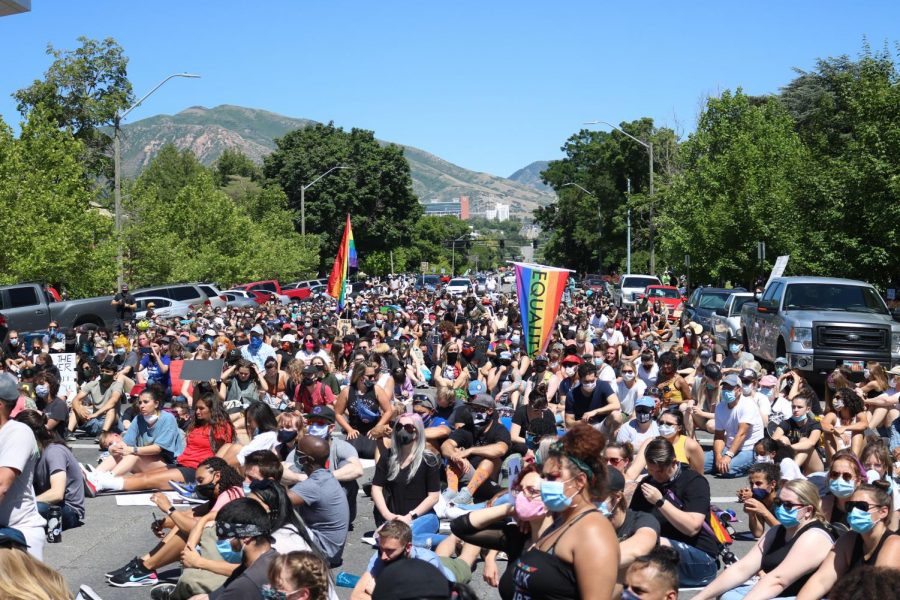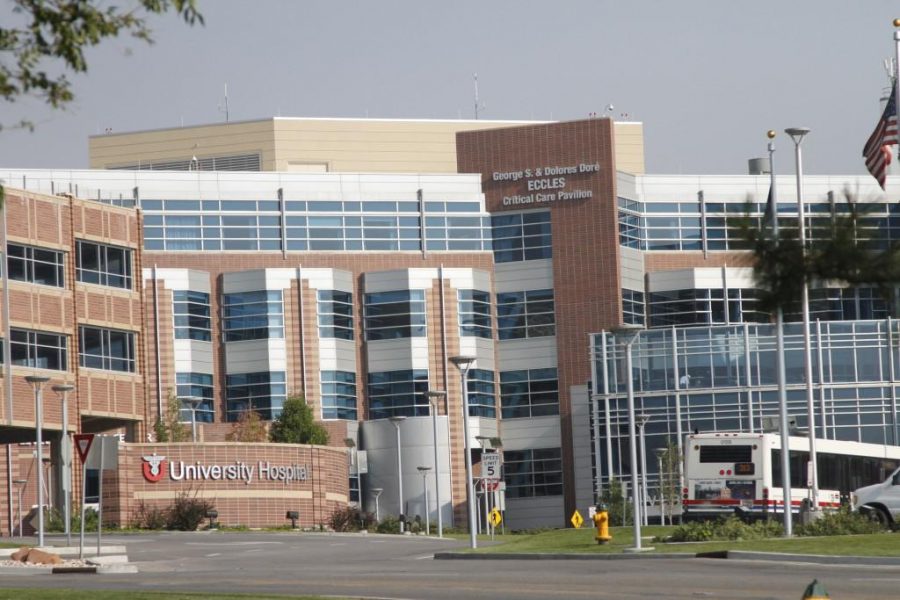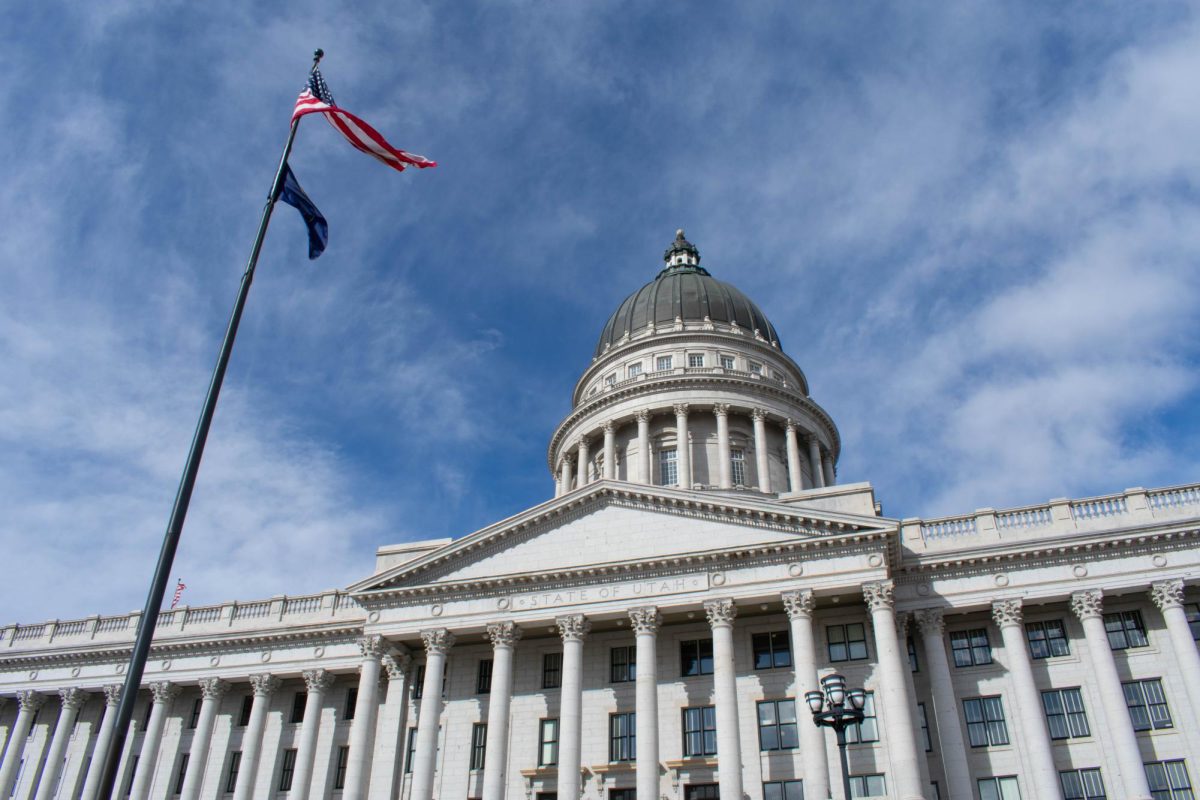Poma: “Wokeness” and the Teenage Psyche
Protestors sit on Salt Lake City streets outside the Public Safety Building listening to organizers speak at the Juneteenth protest. (Photo by Ivana Martinez | Daily Utah Chronicle)
August 9, 2020
In the age of social media and a rocky socio-political climate, younger generations now have the ability to use their unique voices for change. A recent article in the Deseret News illustrated this debate on politically vocal teenagers: some parents are concerned about how involved their children have become in social issues, especially when their children’s opinions begin to differ from their own. We can’t tell the young minds of today to stay silent when the world they will inherit is tearing itself apart. There is always a need for respectful discussions between parents and teenagers, but parents don’t need to be afraid of their children being “woke” and they certainly shouldn’t constrain a teen’s ability to speak up.
By definition, to be “woke” is to be “aware of and actively attentive to important facts and issues (especially issues of racial and social justice).” It is one of many terms coined by the Black community to express awareness to different issues. Some simply see the word as yet another example of teen slang older generation don’t understand — others view it as a way to belittle those with differing political views. Both these negative connotations twist the root of the word and fail to understand its significance.
The word sounds strange, but it provides a common space to talk about issues on social media and in our communities. “Wokeness” shouldn’t be dismissed as a typical phase of growing up or an act of rebellion. Political awareness and activism is beneficial to not only the participant but also the communities and issues they’re involved with. Especially during the coronavirus pandemic and movements such as Black Lives Matter we’re seeing more and more young people take a stand for what is right and navigate an ever evolving, sometimes scary world.
As such, parents must approach “wokeness” with an open mind — and understand that it isn’t just obnoxious slang. Parents shouldn’t feel worried but rather feel proud that their children are using their voices for good. They should not dismiss the value of political discussion because of a fear of disagreements or arguments. Parents must develop a connection and trust with their children so these important discussions, especially now, can take place. The parents of the “woke” teen need to truly “see” their children for who they are and understand that it’s okay if they think differently. Simply put, a parent with a “woke teen” holds the ability to cultivate and embrace their children’s unique perspective.
With that being said, parents should also discuss healthy habits for their teens’ political and social involvement. It can seem like evolving technology continues to attack the “good ol’ days.” Safety should be a priority, and teens have grown far warier of the consequences of being too open with opinions and information online. Political and tech-savviness become even more crucial when teenagers head to college, where many young adults first get involved in social activism. To prepare for new social environments, parents should teach their children to responsibly engage in politics. Young adults need to learn that they have a voice and responsibilities that come with it.
Parents misunderstanding “woke culture” leads to condescension and misunderstandings between parents and children. This dismissive attitude blatantly disregards many issues that young adults today face — problems of which we will have to pick up the pieces. There’s no reason why young adults shouldn’t use their voices. Jamie Margolin, a young teen from Seattle, currently leads like-minded young adults in climate change awareness and action. To some, her behavior may fall under the “woke” umbrella, and she’s taken the necessary steps to use her voice and spark change. Like Margolin, thousands of other young adults who may be wrongfully brushed off as “woke” are making strides to provoke change and awareness for a variety of issues.
We don’t have time to wait a few years before we use our voices. Our planet is dying now. People are dying now. We cannot sit in silence and hope that the world changes on its own. So no, we as young adults can’t enjoy being teenagers when so much is happening. Parents need to listen and encourage political involvement instead of dismissing their children’s political views as uninformed or naïve. We should all value the opinions of the generation that will have to pick up where we left off.











